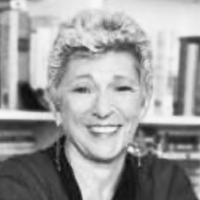This text-based course is a transcript of the webinar, “Counseling and Support for Children with Hearing Loss,” presented by Jane R. Madell, PhD, CCC A/SLP, LSLS Cert AVT.
>> Dr. Jane Madell: Today we are going to talk about counseling and support for children with hearing loss which is a favorite topic of mine. How many people in this group are seeing children with hearing loss in therapy? How many of you have ever run a support group for a child with hearing loss? I hope that I can convince you that this is a good thing to do and a manageable thing to do.
Learning Objectives
Let’s talk about supporting counseling. As a result of this workshop, I hope that attendees will be comfortable talking to children about hearing loss, helping children describe their feelings about being a child with a hearing loss in a mainstream school, and helping children learn to advocate for themselves about issues related to hearing loss.
What is the Issue?
When I started in this field long ago, very few children were being mainstreamed. That is no longer the case. Most children with hearing loss are now educated in mainstream settings and that offers many advantages. Children in a mainstream setting have normal language models. They have normal developmental, academic and social expectations from the people at school and from their parents, and they have better opportunities as adults because their language and academic skills are better than children educated in more isolated settings. The disadvantages of children in mainstream settings are that they do not have significant contact with other children with hearing loss. They may feel lonely and a bit isolated. They may have more trouble with limited social opportunities if language is not sufficient for good social communication.
What Kind Of Support Do Children with Hearing Loss Need?
In general, the research is clear that children in the mainstream have higher academic goals and better language models, but they may be isolated. They may not know other children with hearing loss and their typical hearing friends may not understand the impact of hearing loss. However, we know that they have higher language skills and as a result higher employment opportunities then children in more isolated settings. As children in a mainstream setting get older, social issues can sometimes become more significant.
Children in special education settings may feel less isolated, but we also know they have lower academic and language expectations and they may need assistance dealing with people outside of the school situation. Depending on the school program, children who do not speak well may or may not be able to communicate with people outside of school. We know children who rely on sign language have limited communication options, because only about 1% of the population uses sign. We also know that children who use only sign have an average reading level of third to fourth grade, which limits what their opportunities are as they get older.
I am definitely in favor of mainstreaming children whenever possible.

